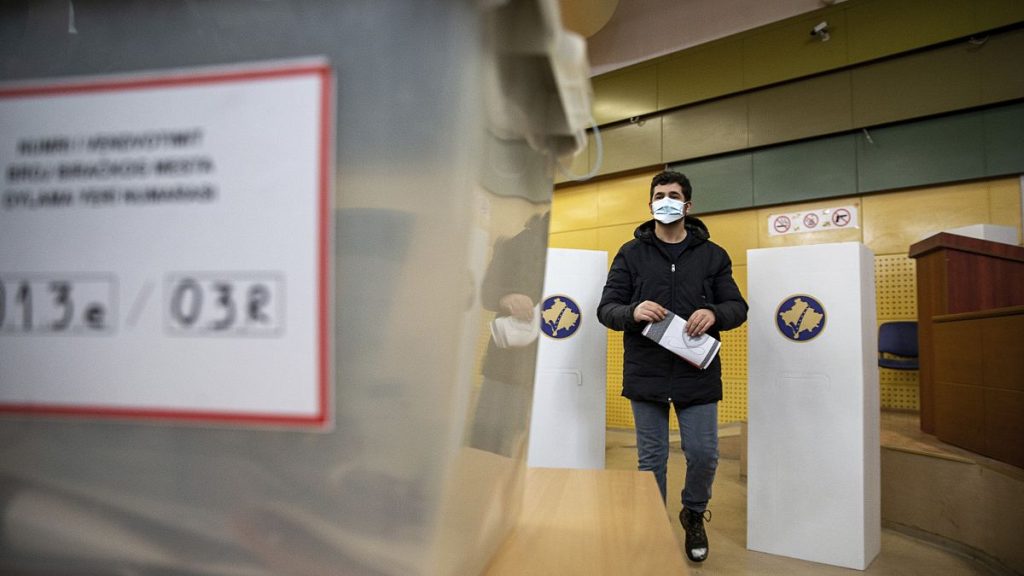Kosovo is gearing up for parliamentary elections scheduled for February 9th, a critical juncture in the nation’s democratic development. The upcoming elections are taking place against a backdrop of heightened tensions and security concerns following incidents last year involving Serb gunmen and attacks on infrastructure. To ensure a peaceful and transparent electoral process, international observers and peacekeepers are playing a crucial role. The European Union has deployed an election observation mission, led by French MEP Nathalie Loiseau, comprising 100 observers to monitor the proceedings and provide an impartial assessment. This underscores the EU’s continued commitment to supporting Kosovo’s democratic progress. The presence of international observers is particularly significant given the global context of challenges to democratic norms and practices.
The elections will see 27 political entities vying for 120 seats in the parliament. The political landscape is diverse, reflecting the multifaceted nature of Kosovar society. A significant development in this election cycle is the participation of over 100,000 voters registered abroad who have already commenced casting their ballots via postal voting. This highlights the engagement of the diaspora in shaping Kosovo’s political future. The Serb minority, which holds 10 reserved seats in parliament, represents a complex element in the electoral equation. The recent census, which pegged the Serb population at around 2.3% of the total population of 1.6 million, has been contested by Serbs, who claim underrepresentation and have largely boycotted the process.
Security arrangements for the elections are being bolstered by the NATO-led international peacekeeping force, KFOR. KFOR, which maintains a 4,300-strong presence in Kosovo, will be augmented by over 200 Italian troops during the election period. This reinforced security presence comes in response to escalating tensions and security incidents witnessed last year, including the killing of a police officer and the occupation of an Orthodox monastery by Serb gunmen, an incident Kosovo attributed to Serbia’s alleged destabilization efforts. Another incident involved an explosion damaging water and power systems, again with Kosovo pointing fingers at Serbia. These incidents have further strained the already fragile relationship between Kosovo and Serbia.
The underlying tension between Kosovo and Serbia stems from Kosovo’s declaration of independence in 2008, a move Serbia vehemently rejects. This unresolved status quo continues to fuel disputes and complicate regional stability. Both the EU and the United States have been actively engaged in mediating between the two sides, urging them to implement previously agreed-upon accords. A key element of these agreements is Kosovo’s commitment to establish an Association of Serb-Majority Municipalities, aimed at granting greater autonomy to Serbian communities within Kosovo. Reciprocally, Serbia is expected to move towards de facto recognition of Kosovo’s sovereignty. The implementation of these agreements remains a significant challenge and a crucial step towards normalizing relations between the two neighbors.
The upcoming elections are crucial not only for Kosovo’s internal political dynamics but also for the broader stability of the region. A successful and peaceful election process, overseen by international observers and secured by peacekeepers, can contribute to building confidence in Kosovo’s democratic institutions and pave the way for further progress in resolving outstanding issues with Serbia. However, the complex interplay of ethnic tensions, historical grievances, and political maneuvering requires sustained international engagement to mitigate risks and facilitate a path towards lasting peace and reconciliation.
The international community, particularly the EU and the US, plays a pivotal role in mediating between Kosovo and Serbia and encouraging them to adhere to their commitments. The successful implementation of agreed-upon measures, including the establishment of the Association of Serb-Majority Municipalities and Serbia’s tacit recognition of Kosovo’s independence, is essential for long-term stability and cooperation. These elections represent a critical opportunity for Kosovo to demonstrate its democratic credentials and for both sides to reaffirm their commitment to dialogue and peaceful conflict resolution. The outcome of the elections and the subsequent actions of the newly elected government will significantly shape the future trajectory of Kosovo-Serbia relations and the overall stability of the region.














